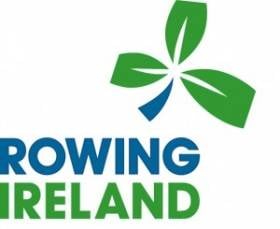Displaying items by tag: Coillte
Coillte to Sponsor Grand League Series
#Rowing: Coillte and Rowing Ireland have announced that Coillte will sponsor the Grand League regatta series. Coillte is a forestry management company which owns about seven per cent of the land cover of Ireland. It is also involved in renewable energy and panel products.
The first leg of this year’s Coillte Grand League series is Skibbereen Regatta which is set for this weekend at the National Rowing Centre in Cork. Around 700 crews and 2,000 athletes compete at Skibbereen Grand League Regatta every year, with a six-lane race running every four minutes over two days – if the unpredictable Irish weather permits. It is a mammoth event and takes up to 100 volunteers to run successfully each year.
Ciarán Fallon, Director of Stewardship and Public Goods at Coillte said: “Coillte is delighted to be supporting Rowing Ireland with this year’s Grand League series ahead of the Rio Olympics in August. Two of the three regattas in this year’s series are taking place at the National Rowing Centre, located in Coillte’s Farran Forest Park in County Cork, one of our flagship parks, so we are encouraging people to turnout in large numbers to support this fantastic event. We are pleased to be able to extend our existing relationship with Rowing Ireland to be the title sponsor for this exciting series as the athletes prepares for Rio.”
Hamish Adams, the chief executive of Rowing Ireland, said: “We have a long established and close relationship with Coillte through our location of the National Rowing Centre in Farran Forest Park. The development of further support from Coillte for the Grand League series further endorses our relationship and we welcome all to attend the upcoming events to experience a day of competitive racing in the majestic setting of Farran Forest Park.”
The 2016 Coillte Grand League will include three regatta events that will each attract up to two thousand rowing competitors as well as five thousand plus spectators each day.
The Coillte Grand League will take place at the following dates and venues:
9th and 10th April: Skibbereen Regatta, National Rowing Centre, Farran Forest Park, Co. Cork.
28th May: Metropolitan Regatta, Blessington Lake, Co. Wicklow.
25th and 26th June: Cork Regatta, National Rowing Centre, Farran Forest Park, Co. Cork.
The Grand League regatta series was established by Rowing Ireland in 2010 and has since become the premier domestic rowing league in Ireland, contributing to the development of numerous athletes at both junior and senior level. The series provides rowers at all levels with the opportunity to perform and develop their racing prowess in a fair and competitive environment.





























































